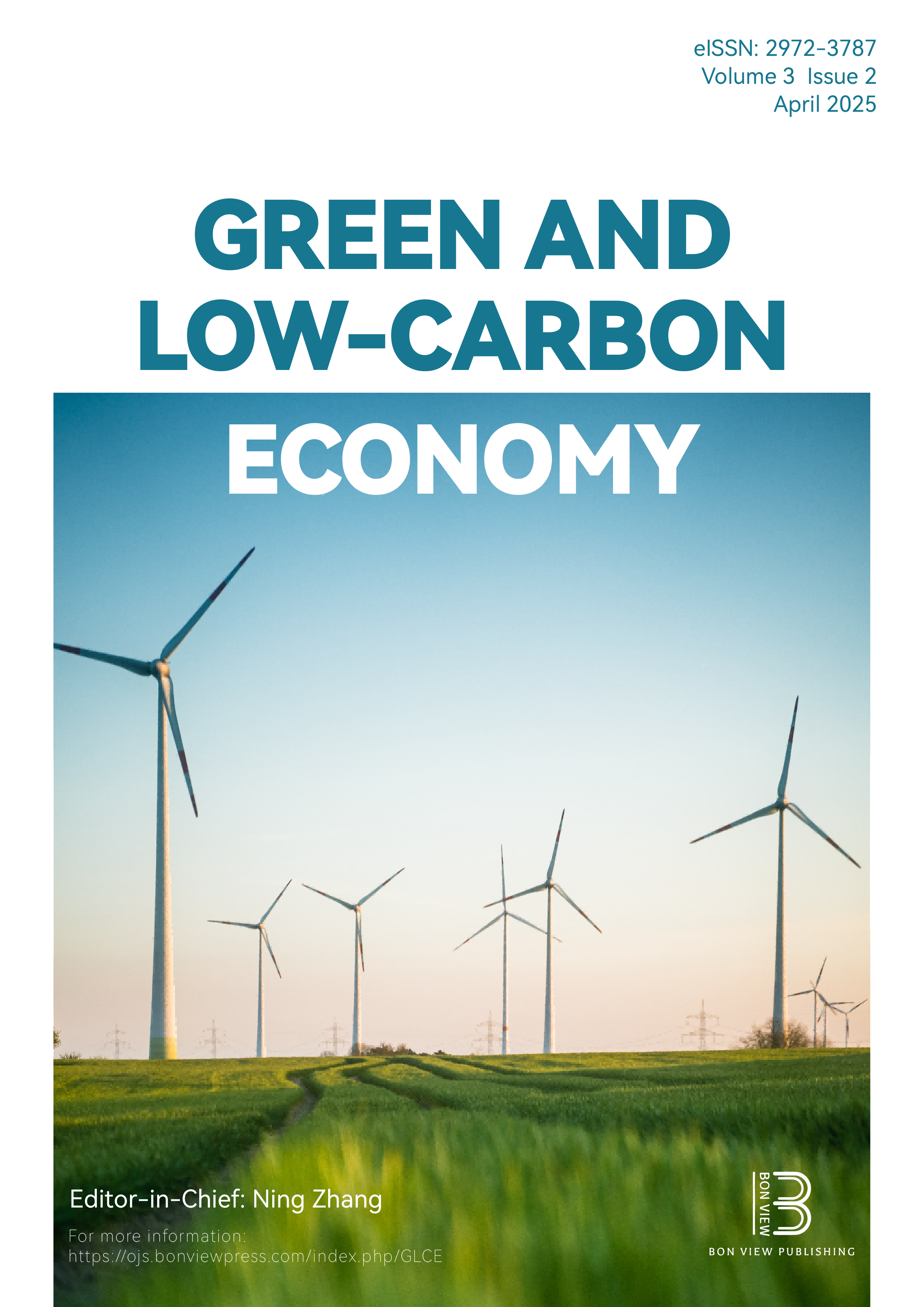Under the "Dual-Carbon" Goal: Green Credit Policy and High-Quality Enterprise Development in China
DOI:
https://doi.org/10.47852/bonviewGLCE42022548Keywords:
dual-carbon targets, green credit policy, low-carbon technological progress, difference-in-difference model, ChinaAbstract
Given the context of "carbon peaking" and "carbon neutrality" goals, advancing the growth of green finance stands as a crucial agenda to bolster the high-quality advancement of China's economy in the contemporary epoch. Green credit is a remarkable milestone in pursuing the "Dual-carbon" emissions reduction objective and promoting high-quality development. Empirically, scant information exists regarding the correlation between GCP and the high-quality development of heavily polluting enterprises (HPEs). Using panel data from Chinese Lushan A-share listed enterprises spanning 2005 to 2022, this study employs the difference-in-difference model to evaluate the impact of the green credit policy (GCP) on HPEs. Our results show that after the implementation of GCP, the high-quality development of HPEs increased by 9.08% compared to non-HPEs. Despite considering multiple potential confounding factors, the conclusion remains unchanged. The positive effect is particularly pronounced among non-state-owned enterprises characterized by high carbon emissions and in the eastern region. The mechanism analysis indicates that GCP plays a role in influencing the high-quality development of enterprises by promoting low-carbon technological progress. This study establishes a foundation for making informed decisions in optimizing the green financial policy system to effectively enhance the high-quality development of enterprises in China and other developing countries.
Received: 23 February 2024 | Revised: 17 May 2024 | Accepted: 12 July 2024
Conflicts of Interest
The authors declare that they have no conflicts of interest to this work.
Data Availability Statement
Data available on request from the corresponding author upon reasonable request.
Author Contribution Statement
Lili Xu: Conceptualization, Methodology, Software, Formal analysis, Writing - review & editing, Visualization, Project administration. Chang Li: Methodology, Validation, Formal analysis, Investigation, Data curation, Writing - original draft. Xinxin Zhang: Conceptualization, Resources, Writing - review & editing, Supervision, Funding acquisition. Xu Zhao: Conceptualization, Resources, Writing - review & editing, Supervision, Funding acquisition.
Downloads
Published
Issue
Section
License
Copyright (c) 2024 Authors

This work is licensed under a Creative Commons Attribution 4.0 International License.
How to Cite
Funding data
-
National Natural Science Foundation of China
Grant numbers 72074136;72104129;72033005;72304173 -
Taishan Scholar Project of Shandong Province
Grant numbers Young Taishan Scholars


